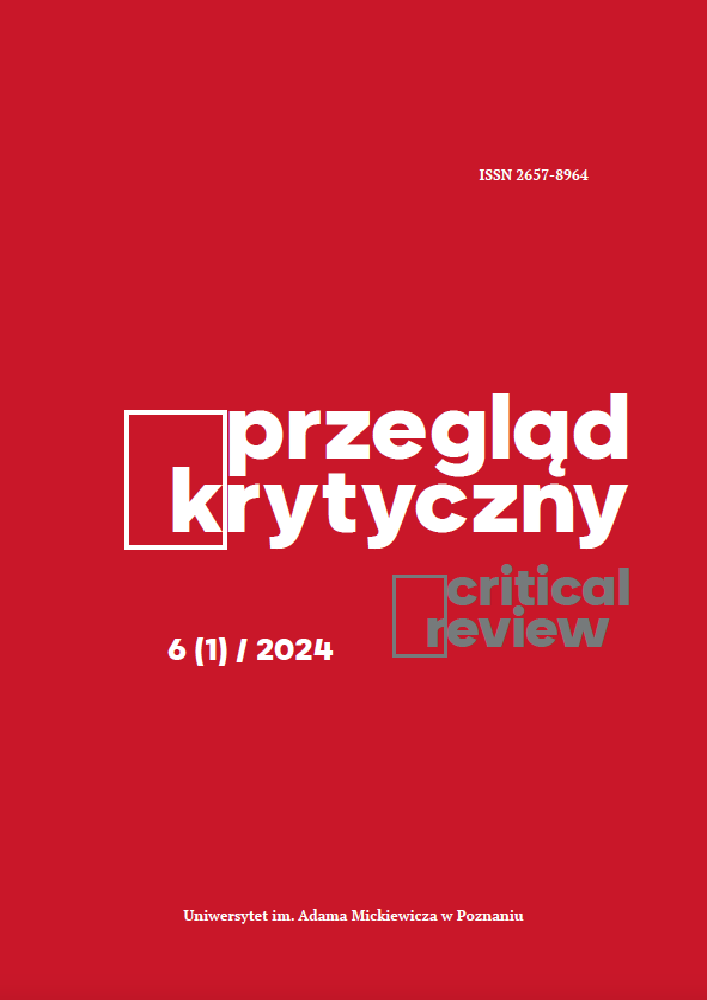Abstrakt
This article explores the category of “difficult knowledge” within the sensitive contexts of education and social research amidst contemporary global transformations. Uncertain times marked by humanitarian crises, wars, migration, and socio-economic shifts challenge the stability and security of societies. Difficult knowledge encompasses emotionally charged, complex topics integral to social, political, and educational spheres, compelling individuals and groups to confront uncomfortable truths and deconstruct human understanding. This concept, introduced by Britzman (1998), addresses the cognitive and emotional struggles in engaging with traumatic representations of historical and social events. The paper highlights the necessity for educators and researchers to navigate these challenges, fostering critical and reflective analyses while managing their psychological impacts. It underscores the dual role of researchers as both empathetic human beings and objective professionals, particularly in extreme field conditions. Additionally, it discusses the implications of conspiracy theories as a form of difficult knowledge, emphasizing the need for educational strategies that promote critical thinking and resilience. The article calls for greater attention to the sensitivities of the research process and the ethical responsibilities in studying and teaching difficult knowledge.
Bibliografia
Battista, D. (2024). Communication and politics in the age of artificial intelligence: an overview of deepfakes and their implications. Society Register, 8(2), 7-24. DOI: https://doi.org/10.14746/sr.2024.8.2.01
Britzman, D. P. (1998). Lost subjects, contested objects: Toward a psychoanalytic inquiry of learning. Albany: State University of New York Press.
Del Vicario, M., Bessi, A., Zollo, F., Petroni, F., Scala, A., Caldarelli, G., ... & Quattrociocchi, W. (2016). The spreading of misinformation online. Proceedings of the National Academy of Sciences, 113(3), 554-559. DOI: https://doi.org/10.1073/pnas.1517441113
Farley, L. (2009). Radical hope: Or, the problem of uncertainty in history education. Curriculum Inquiry, 39(4), 537-554. DOI: https://doi.org/10.1111/j.1467-873X.2009.00456.x
Garrett, H. J. (2011). The routing and re-routing of difficult knowledge: Social studies teachers encounter When the Levees Broke. Theory & Research in Social Education, 39(3), 320-347. DOI: https://doi.org/10.1080/00933104.2011.10473458
Jabkowski, P., Domaradzki, J., & Baranowski, M. (2023). Exploring COVID-19 conspiracy theories: education, religiosity, trust in scientists, and political orientation in 26 European countries. Scientific Reports, 13, 18116. DOI: https://doi.org/10.1038/s41598-023-44752-w
Liamputtong, P. (2007). Researching the vulnerable: A guide to sensitive research methods. London: SAGE Publishing. DOI: https://doi.org/10.4135/9781849209861
Pitt, A. & Britzman, D. (2003). Speculations on qualities of difficult knowledge in teaching and learning: an experiment in psychoanalytic research. International Journal of Qualitative Studies in Education, 16(6), 755-776. DOI: https://doi.org/10.1080/09518390310001632135
Simon, R. I. (2011). A shock to thought: Curatorial judgment and the public exhibition of ‘difficult knowledge’. Memory Studies, 4(4), 432-449. DOI: https://doi.org/10.1177/1750698011398170
Verdery, K. (2014). Ethnography in the Securitate archive. Acta Universitatis Sapientiae, Social Analysis, 4(1-2), 7-29.
Zembylas, M. (2014). Theorizing “Difficult Knowledge” in the Aftermath of the “Affective Turn”: Implications for Curriculum and Pedagogy in Handling Traumatic Representations. Curriculum Inquiry, 44(3), 390-412. DOI: https://doi.org/10.1111/curi.12051
Licencja
Prawa autorskie (c) 2024 Urszula Markowska-Manista, Mariusz Baranowski

Utwór dostępny jest na licencji Creative Commons Uznanie autorstwa – Użycie niekomercyjne 4.0 Międzynarodowe.
W przypadku zakwalifikowania tekstu do druku Autor wyraża zgodę na przekazanie praw autorskich do tego artykułu wydawcy (zob. Polityka open access). Autor artykułu zachowuje prawo wykorzystania treści opublikowanego przez czasopismo artykułu w dalszej pracy naukowej i popularyzatorskiej pod warunkiem wskazania źródła publikacji.


